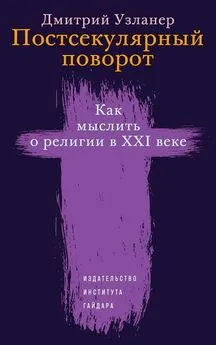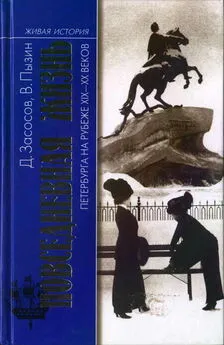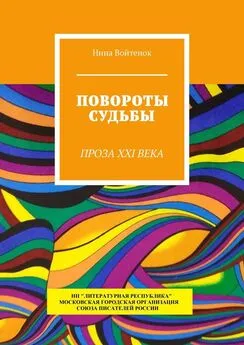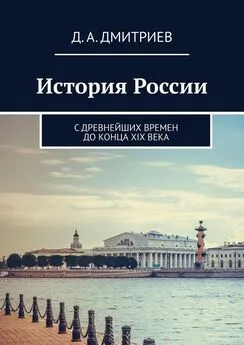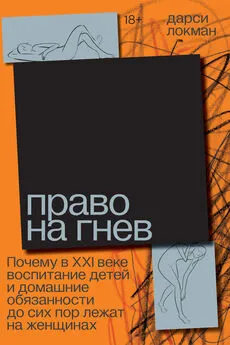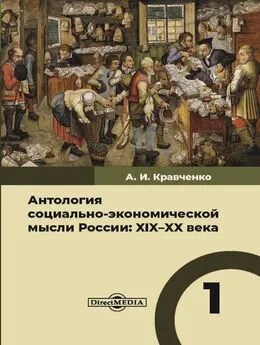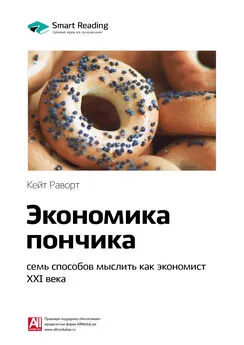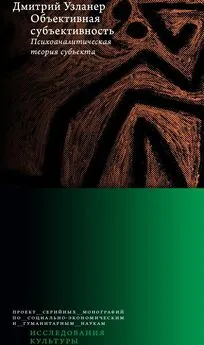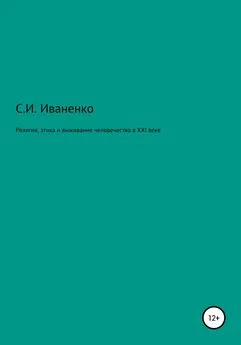Дмитрий Узланер - Постсекулярный поворот. Как мыслить о религии в XXI веке
- Название:Постсекулярный поворот. Как мыслить о религии в XXI веке
- Автор:
- Жанр:
- Издательство:Издательство Института Гайдара
- Год:2020
- Город:Москва
- ISBN:978-5-93255-581-1
- Рейтинг:
- Избранное:Добавить в избранное
-
Отзывы:
-
Ваша оценка:
Дмитрий Узланер - Постсекулярный поворот. Как мыслить о религии в XXI веке краткое содержание
Постсекулярный поворот. Как мыслить о религии в XXI веке - читать онлайн бесплатно ознакомительный отрывок
Интервал:
Закладка:
Dupre L. Passage to Modernity: An Essay in the Hermeneutics of Nature and Culture. New Haven: Yale University Press, 1993.
Dzalto D. Religion and Realism. Cambridge: Cambridge Scholars, 2016.
Eggermeier M. T. A Post-Secular Modernity? Jürgen Habermas, Joseph Ratzinger, and Johann Baptist Metz on Religion, Reason, and Politics // The Heythrop Journal. 2012. 53: 453–466.
Eisenstadt Sh. Multiple Modernities // Daedalus. 2000. 129 (1).
Eisenstadt Sh. N. Comparative Civilizations and Multiple Modernities. 2 Vol. Leiden: Brill, 2003.
Eisenstadt Sh. N. European Civilization in a Comparative Perspective: A Study in the Relations between Culture and Social Structure. Oxford University Press, 1987.
Eisenstadt Sh. N. The New Religious Constellations in the Frameworks of Contemporary Globalization and Civilizational Transformation // Ben-Rafael E., Sternberg Y. (eds.) World Religions and Multiculturalism. Leiden, Boston: Brill, 2010.
Eisenstadt Sh. N. Tradition, Change, and Modernity. John Wiley & Sons Inc., 1983.
Fagan G. Believing in Russia: Religious Policy after Communism. London: Routledge, 2011.
Feil E. From the Classical religio to the Modern Religion: Elements of a Transformation between 1550 and 1650 // Despland M., Vallee G. (eds.) Religion in History. The Word, the Idea, the Reality / La religions dans l’histoire. Le mot, l’idee, la realite. Waterloo: Wilfred Laurier University Press, 1992.
Feil E. Religio. Bande 1–4. Gottingen: Vandenhoeck und Ruprecht, 1986–2007.
Fenn R. K. Toward a Theory of Secularization. Society for the Scientific Study of Religion, 1978.
Ferrara A., Kaul V. and Rasmussen D. Special Issue of Philosophy and Social Criticism: Postsecularism and Multicultural Jurisdictions. 2010. Vol. 36 (3–4).
Finke R., Stark R. The Сhurching of America, 1776–2005: Winners and Losers in Our Religious Economy. New Brunswick, NJ: Rutgers University Press, 2005.
Fitzgerald T. Discourse on Civility and Barbarity: A Critical History of Religion and Related Categories. Oxford, N. Y.: Oxford University Press, 2007.
Fitzgerald T. Playing Language Games and Performing Rituals: Religious Studies as Ideological State Apparatus // Method & Theory in the Study of Religion. 2004. 15 (3): 209–254.
Fitzgerald T. The Ideology of Religious Studies. New York: Oxford University Press, 2000.
Fordahl C. The Post-Secular: Paradigm Shift or Provocation? // European Journal of Social Theory. 2017. 20 (4): 550–568.
Foucault M. Le shah a cent ans de retard // Corriere della serra, 1 octobre 1978.
Foucault M. Une poudriere nomme Islam // Corriere della serra, 13 fevrier 1979.
Gordon S. Hitler, Germans, and the «Jewish Question». Princeton: Princeton University Press, 1984.
Gorski Ph., Kyuman Kim D., Torpey J. and VanAntwerpen J. (eds.) The Post- Secular in Question: Religion in Contemporary Society. New York & London: New York University Press, 2012.
Habermas J. A Conversation about God and the World // Habermas J. Religion and Rationality. Essays on Reason, God, and Modernity. Polity Press, 2002.
Habermas J. Dialogue. Jürgen Habermas and Charles Taylor // Butler J., VanAntwerpen J. (eds.) The Power of Religion in the Public Sphere. Columbia: Columbia University Press, 2011. P. 60–69.
Habermas J. Europe: The Faltering Project. Cambridge: Polity Press, 2009.
Habermas J. Religion in the Public Sphere // European Journal of Philosophy. 2006. 14 (1): 1–25.
Habermas J. The Boundary between Faith and Knowledge: On the Reception and Contemporary Importance of Kant’s Philosophy of Religion // Habermas J. Between Naturalism and Religion. Polity Press, 2008. P. 209–248.
Habermas J. «The Political»: The Rational Meaning of a Questionable Inheritance of Political Theology // Butler J., VanAntwerpen J. (eds.) The Power of Religion in the Public Sphere. Columbia: Columbia University Press, 2011. P. 15–33.
Habermas J. The Structural Transformation of the Public Sphere: An Inquiry into a Category of Bourgeois Society [1962]. Cambridge: Polity Press, 1989.
Habermas J. Transcendence from Within, Transcendence in this World // Habermas J. Religion and Rationality. Essays on Reason, God, and Modernity. Polity Press, 2002.
Habermas J., Mendieta E. «A Postsecular World Society? On the Philosophical Significance of Postsecular Consciousness and the Multicultural World Society». An Interview with Jürgen Habermas // The Immanent Frame. 3 February 2010 [tif.ssrc.org/wp-content/uploads/2010/02/A-Postsecular-World-Society-TIF.pdf, доступ от 12.05.2019].
Habermas J., Ratzinger J. The Dialectics of Secularization. On Reason and Religion. San Francisco: Ignatius Press, 2006.
Habermas J., Ratzinger J. Vorpolitische Moralische Grundlagen eines Freiheitlichen Staates // zur debatte. 2004. 34 (1): 1–12.
Hanegraaf W. New Age Spiritualities as Secular Religion: A Historian’s Perspective // Social Compass. 1999. 46 (2): 145–160.
Harrington A. Habermas and the «Post-Secular Society» // European Journal of Social Theory. 2007. 10 (4): 543–560.
Harrison P «Religion» and the Religions in the English Enlightenment. Cambridge University Press, 1990.
Harrison P. The Book of Nature and Early Modern Science // Berkel R. van, Vanderjagt A. (eds.) The Book of Nature in Early Modern and Modern History. Peeters, 2006.
Hart D. B. Atheist Delusions: The Christian Revolution and Its Fashionable Enemies. New Haven, CT: Yale University Press, 2010.
Hashemi M. A Post-Secular Reading of Public Sociology // Social Compass. 2016. 63 (4): 461–477.
Haynes J. (ed.) Routledge Handbook of Religion and Politics. London and New York: Routledge, 2009.
Herman A., Beaumont J., Cloke P., and Walliser A. Spaces of Postsecular Engagement in Cities // Beaumont J., Cloke P. (eds.) Faith-Based Organizations and Exclusion in European Cities. Bristol: Policy Press, 2012. P. 59–80.
Holyoake G. J. English Secularism: A Confession of Belief. Chicago: The Open Court Publishing Company, 1896.
Horowitz M. C. (ed.) New Dictionary of the History of Ideas. Thomson Gale, 2005.
Horuzhy S. S. Anthropological Dimensions of the Postsecular Paradigm [http://synergia-isa.ru/wp-content/uploads/2011/05/hor_faenza_2011.pdf, доступ от 12.05.2019].
Hunter J. D. Culture Wars: The Struggle to Control the Family, Art, Education, Law, and Politics in America. Basic Press, 1991.
Janicaud D. Le Tournant theologique de la phenomenologie francaise. Combas: Ed. de l’Eclat, 1991.
Jarzyñska K. The Russian Orthodox Church as Part of the State and Society // Russian Politics and Law . 2014. 52 (3): 87–97.
Jenkins Ph. God’s Continent: Christianity, Islam, and Europe’s Religious Crisis. Oxford University Press, 2009.
Kalaïtzidis P. Orthodox Theology and the Challenges of a Post-Secular Age: Questioning the Public Relevance of the Current Orthodox Theological «Paradigm» // Fihas R. (ed.) Proceedings of the International Conference «Academic Theology in a Post-Secular Age». Lviv: Institute of Ecumenical Studies (Lviv), St. Andrew’s Biblical Theological Institute (Moscow), 2013. P. 4–26.
Karpov V. Desecularization: A Conceptual Framework // Journal of Church and State. 2010. 52 (2): 232–270.
Karpov V. The Social Dynamics of Russia’s Desecularisation: A Comparative and Theoretical Perspective // Religion, State and Society. 2013. 41 (3): 254–283.
King R. (ed.) Religion, Theory, Critique: Classic and Contemporary Approaches and Methodologies. N. Y.: Columbia University Press, 2017.
Kitcher F. Science in a Democratic Society. Prometheus Books. 2011.
Kitcher F. Science, Truth, and Democracy. Oxford University Press, 2001.
Knott K. Cutting through the Postsecular City: A Spatial Interrogation // Molendijk A., Beaumont J. and Jedan Ch. (eds.) Exploring the Postsecular. Bristol: Policy Press, 2012. P. 19–38.
Köllner T. On the Restitution of Property and the Making of «Authentic» Landscapes in Contemporary Russia // Europe-Asia Studies. 2018. 70 (7): 1083–1102.
Köllner T. Patriotism, Orthodox Religion and Education: Empirical Findings from Contemporary Russia // Religion, State & Society. 2016. 44 (4): 366–386.
Kyrlezhev A. On the Possibility or Impossibility of an Eastern Orthodox Political Theology // Stoeckl K., Gabriel I. and Papanikolaou A. (eds.) Political Theologies in Orthodox Christianity. London, New York: Bloomsbury, 2017. P. 181–187.
Kyrlezhev A. The Postsecular Age: Religion and Culture Today // Religion, State, and Society. 2008. 36 (1): 21–31.
Leezenberg M. How Ethnocentric Is the Concept of the Postsecular? // Molendijk A., Beaumont J. and Jedan Ch. (eds.) Exploring the Post-Secular. The Religious, the Political and the Urban. Leiden: Brill, 2010. P. 91–112.
Lipset S. M., Rokkan S. Cleavage Structures, Party Systems, and Voter Alignments: An Introduction // Lipset S. M. and Rokkan S. (eds.) Party Systems and Voter Alignments: Cross-National Perspectives. New York: Free Press, 1967. P. 1–64.
Losonczi P., Singh A. (eds.) Discoursing the Post-Secular. Essays on the Habermasian Post-Secular Turn. Münster: LIT-Verlag, 2010.
Lotman Iu., Uspenskii B. Binary Models in the Dynamics of Russian Culture (to the End of the Eighteenth Century) // The Semiotics of Russian Cultural History. Ithaca, N. Y.: Cornell University Press, 1985. P. 30–66.
Löwith K. Weltgeschichte und Heilsgeschichte. Die Theologischen Voraussetzungen der Geschichtsphilosophie. Stuttgart, 1953.
Luckmann Th. The Invisible Religion: The Problem of Religion in Modern Society. L.: Collier-Macmillan, 1970.
Lyotard J.-F. The Postmodern Condition. Manchester: Manchester University Press, 1984.
MacIntyre A. Whose Justice? What Rationality? Notre Dame, Indiana: University of Notre Dame Press, 1988.
Maclure J., Taylor Ch. Secularism and Freedom of Conscience. Cambridge, Mass.: Harvard University Press, 2011.
Makrides V. N. Orthodox Christianity and State/Politics Today. Factors to Take into Account // Koellner T. (ed.) Orthodox Religion and Politics in Contemporary Eastern Europe. On Multiple Secularisms and Entanglements. L.: Routledge, 2018.
Makrides V. N. Political Theology in Orthodox Christian Contexts: Specificities and Particularities in Comparison with Western Latin Christianity // Stoeckl K., Gabriel I., Papanikolaou A. (eds.) Political Theologies in Orthodox Christianity: Common Challenges — Divergent Positions. Bloomsbury T&T Clark, 2017. P. 25–54.
Martin D. A General Theory of Secularization. L.: Harper and Row, 1978.
Martin D. Pentecostalism: The World Their Parish. Wiley-Blackwell, 2001.
Masuzawa T. The Invention of World Religions: Or, How European Universalism Was Preserved in the Language of Pluralism. Chicago: University of Chicago Press, 2005.
Mccutcheon R. T. Manufacturing Religion: The Discourse on Sui Generis Religion and the Politics of Nostalgia. Oxford University Press, 1997.
Читать дальшеИнтервал:
Закладка:
